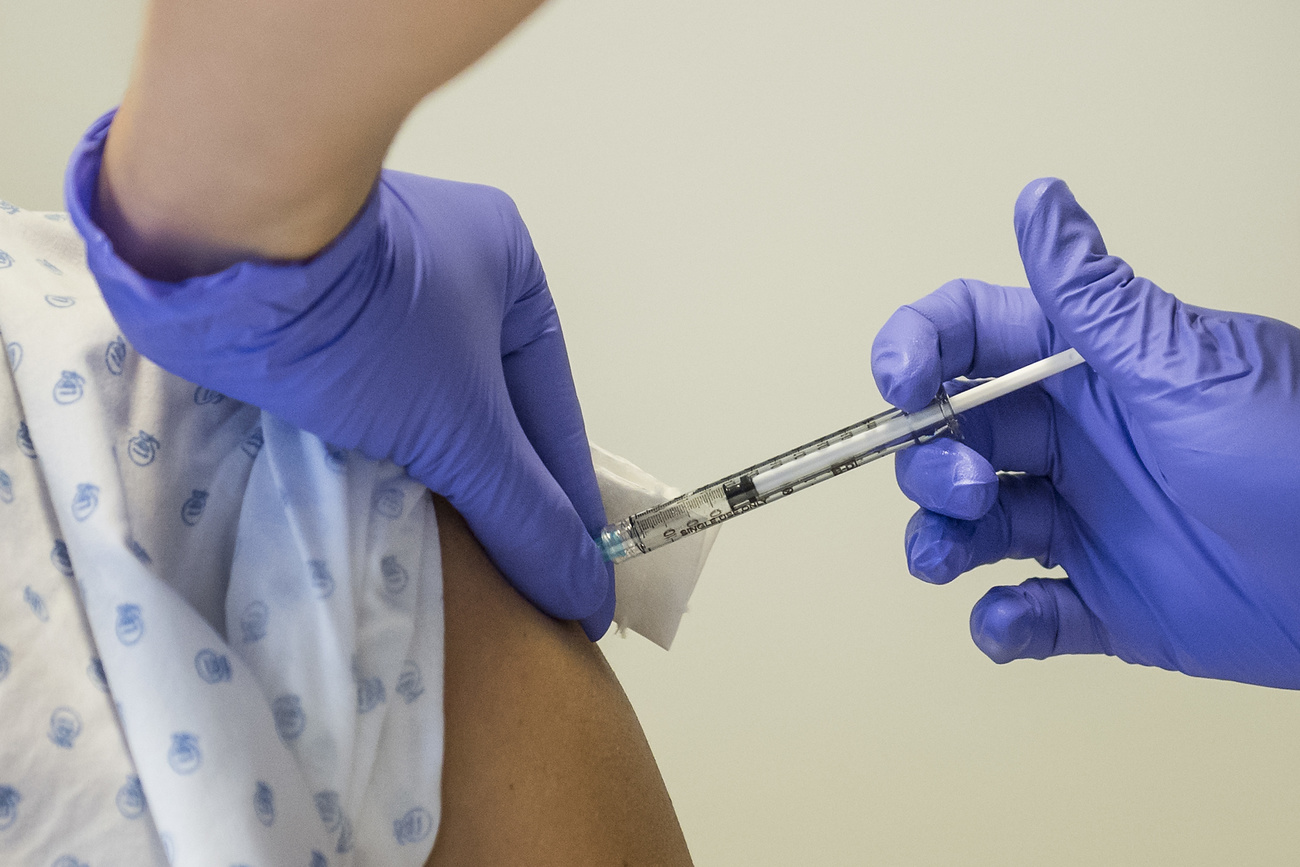
Study: human placenta is target of coronavirus infection

SARS-CoV-2 – the virus causing Covid-19 – can infect cells of the human placenta, Bern and Lausanne scientists have found. They say that the virus also proliferates and infects neighbouring placental cells.
“This is a major advance in our understanding of Covid-19 during pregnancy,” explained Marco Alves, study group leader and immunologist at the Institute of Virology and ImmunologyExternal link (IVI), in Bern.
“Thousands of infectious viral particles can be produced rapidly in the placenta. In addition, we observed that expression of the SARS-CoV-2 receptor in the placenta is highly variable and specific to each pregnancy, which might explain why the virus sometimes is transmitted to the foetus,” Alves said.
The results of the research were recently published in the journal Cell Reports MedicineExternal link and were made public in a statementExternal link in Switzerland on Friday.
Pregnant women have a 70% greater risk of becoming infected with SARS-CoV-2 than the general population of the same age, the researchers said.
“If they become infected, the risk of a severe progression, i.e. admission to intensive care, is around 5-10%,” explained David Baud, head of obstetrics at the Lausanne University Hospital, (CHUVExternal link), who was also involved in the study, in the joint statement.
The risk of premature delivery rises two to three times and the risk of foetal death also increases by two to three times if the pregnant woman is infected.
Vaccine role
The messenger RNA (mRNA) vaccine (such as those produced by Moderna and Pfizer/BioNTech) which has been given to several hundred thousand pregnant women so far, presents no increase in risk to the mother and child, the statement added.
mRNA technology is a process that injects a fragment of the coronavirus blueprint into human cells to prompt the body to produce a defensive response.
It explained that the messenger RNA did not pass into the foetus, but that the antibodies developed by the mother did cross the placental barrier and would protect the child.
“The fact that the virus can infect and proliferate in the placenta demonstrates the need for women to be vaccinated,” said the two researchers.
Vaccination against SARS-CoV-2 is currently recommended for all pregnant women in Switzerland. On October 26, the use of a third booster jab was cleared by the Swiss medicines regulator for high risk people, but not pregnant women.

More
Covid vaccine boosters approved for vulnerable groups in Switzerland

In compliance with the JTI standards
More: SWI swissinfo.ch certified by the Journalism Trust Initiative





























You can find an overview of ongoing debates with our journalists here . Please join us!
If you want to start a conversation about a topic raised in this article or want to report factual errors, email us at english@swissinfo.ch.